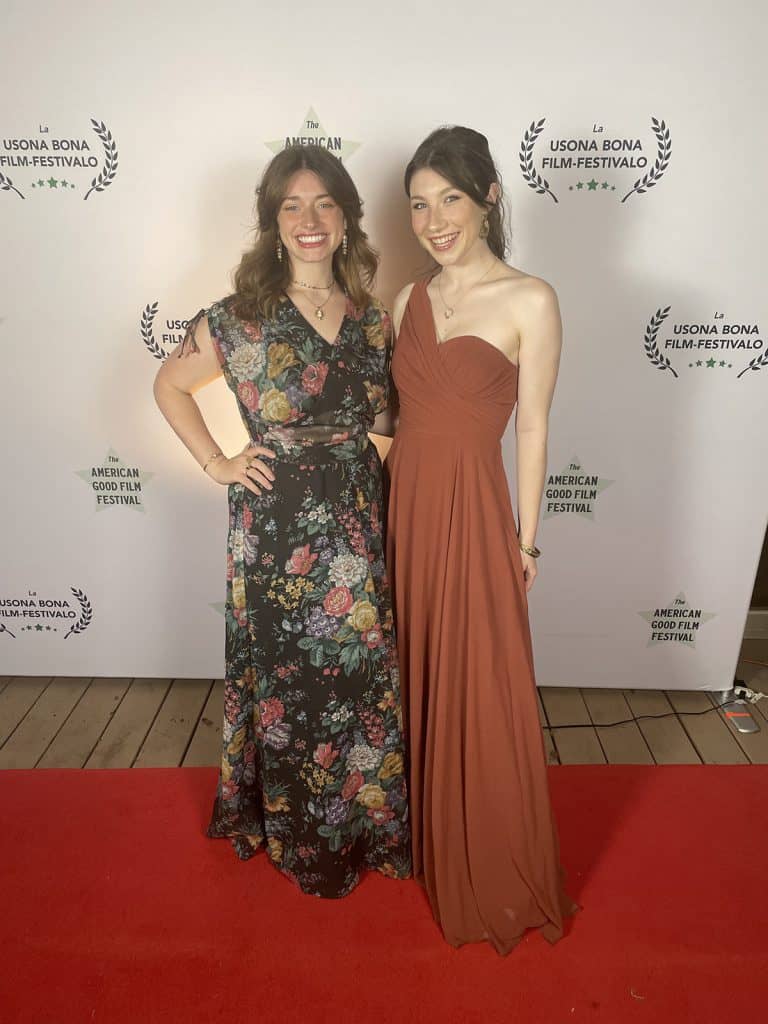Student Spotlight: Meet Mack (Mackenzie) Morris 24MAF
Read in: Español
In this series of student spotlights, we’re excited to highlight students from various programs to delve into their unique journeys and future plans. Join us in discovering more about Mack (Mackenzie) Morris through this insightful Q&A.

Name: Mack (Mackenzie) Morris
Program: Master of Analytical Finance (MAF), Class of 2024
Hometown: St. Louis, MO
Career aspiration: My number one career goal is to do good in the world. I have accepted a position as an Investment Analyst at Emory Investment Management following graduation, and I look forward to applying my knowledge to grow the endowment of a higher education institute and hospital system.
Can you walk us through your academic journey from Missouri State University to your decision to pursue the Master of Analytical Finance (MAF) program at Goizueta Business School?
My undergraduate experience was very academia-oriented. As a junior, I published a research article in a regional economics journal with my sights set on a research-driven career. I have always wanted to do work that has a positive impact, and at the time, I thought informing policy through research would be my path.
Ultimately, I realized I wanted to see the results of my work in a more tangible way and on a shorter time horizon while still using my quantitative skills. Finance seemed the perfect intersection of training and my desire to do good in the world. Since my background was more oriented to academia, I knew very little about finance and decided a master’s would be the best way to get the skills I need as well as the resources to help me find the right role within the industry.
How did your experiences at Penn State and serving with Americorps influence your career trajectory and decision to pursue a career in finance?
I started the program at Penn State immediately following undergrad, and I think I needed time in the workforce to get some perspective on what I really wanted my day-to-day to look like.
I decided to move to Atlanta with my best friend to take a year doing something completely unrelated to anything I had done before in the hopes it would show me what I am really interested in pursuing, and it did just that. I loved how my work as a Financial Aid Counselor was fast-paced, and I loved working on a small team of devoted professionals, my fellow counselors. I saw the impact of my work every day and felt motivated to do even the small tasks. What I missed was the analytical side. I realized that my comparative advantage was in quantitative reasoning, data analysis, and talking about finances in a way that non-finance people (17-year-olds, for example) could understand. As I met with finance professionals and researched opportunities, I felt pulled to a career in finance.
You mentioned wanting a career that blends quantitative analysis with making a positive impact. How do you envision achieving this balance in your role as an Investment Analyst for Emory Investment Management?
I think being values-driven is my superpower. I stay grounded and motivated in my work when I can connect with the deeper purpose of why I am doing it. I’ll constantly be learning new things and really engaging with my intellectual curiosity, and everything that I do will ultimately benefit the endowment of Emory. My work will contribute to the university’s ability to fund scholarships, pay faculty, and operate the hospital system.
Could you share a specific example of how your background in math, economics, and other diverse areas of study has shaped your approach to problem-solving in finance?
The main way my math background has been in being able to understand relationships and patterns in the data or statistics we use to evaluate investments. I notice myself using my “research brain” when I see relationships between two variables for example and I find myself asking whether it is significant, replicable, or if it is the result of some other confounding variables. My past studies have taught me to think critically about the information I receive and to poke holes in it before I take it as true.

Balancing academic pursuits with your personal interests like improv comedy, painting, and filmmaking must be challenging. How do you manage your time effectively and ensure you’re making the most of both worlds?
I have been really intentional about evaluating my priorities and structuring my week in a way that respects all of my commitments. I treat my film meetings, for example, as a non-negotiable in my schedule the same way my classes are. I have firm boundaries with school and treat it more like a 9-5 so I can have my evenings for art.
Making time for my passions is as important as studying is because it keeps me from feeling burnt out, which in turn makes me more productive, engaged, and successful at school. Similarly, devoting myself to my studies and valuing the quality of my work motivates me to show up in the same way for my creative pursuits.
How has your involvement in the arts, particularly acting and filmmaking, influenced your perspective or skills in the realm of finance and analytics?
Filmmaking and acting are synonymous with storytelling and communicating which have been invaluable in my career. Since I know how to tell a story and keep my audience engaged, I can creatively communicate financial information in a way that is easy and even fun to learn about.
As someone deeply involved in short films and improv comedy, how do you see creativity intersecting with the world of finance, if at all?
I think finance has been dominated by a very specific type of thinker for a long time. Finance continues to be a male dominated field and consists largely of “left-brained thinkers.” I don’t know if improv could be directly applied to finance for example, but I do know that if you spend all your time living in one way of thinking, you have major blind spots. I think of my artistic pursuits as mirrors that keep me aware of and comfortable with new, interesting perspectives.
Can you share a memorable experience or project from your time at Goizueta Business School that has had a significant impact on your personal or professional growth?
Working on the Investment Fund for our class has been an invaluable educational and professional experience. My work as the CTO has taught me that problem-solving is a never-ending loop. I’m constantly thinking of new ways to streamline our data tracking to make it more efficient, more accurate, and simpler. I think it has taught me a lot about patience since tasks always take longer than I expect.
Who has been your favorite professor at Goizueta, and what made their teaching style or course content stand out to you?
I really enjoyed Professor Valerio’s classes. They were more on the theory side and I liked how grounded they were in mathematical principles. He also is clearly someone who is fascinated by the material he teaches, which makes it that much more fascinating to learn.
Reflecting on your journey thus far, what has been your favorite class at Goizueta and why? How has it contributed to your development as a finance professional with a passion for social impact?
Practicum has been my favorite class because it is so hands on. It’s an opportunity for us to apply what we learn in our other classes and to really lean into what we find interesting since assignments are typically very open-ended.
Whether you’re a finance novice or you’re looking to take your skills to the next level, Goizueta’s 10-month, action-based Master of Analytical Finance program is for versatile thinkers ready for next-gen finance careers in sales and trading, investment management, FinTech, and investment banking. Learn more about Goizueta’s MAF program.
Read in: Español
